Posts - Page 116 (page 116)
-
 6 min readIn Oracle, the error message "column ambiguously defined" occurs when a column is referenced in a query that exists in more than one of the tables being joined, but the database engine cannot tell from which table the column should be selected.To fix this error, you need to explicitly specify which table the column belongs to by prefixing the column name with the table alias or table name in the SELECT statement.
6 min readIn Oracle, the error message "column ambiguously defined" occurs when a column is referenced in a query that exists in more than one of the tables being joined, but the database engine cannot tell from which table the column should be selected.To fix this error, you need to explicitly specify which table the column belongs to by prefixing the column name with the table alias or table name in the SELECT statement.
-
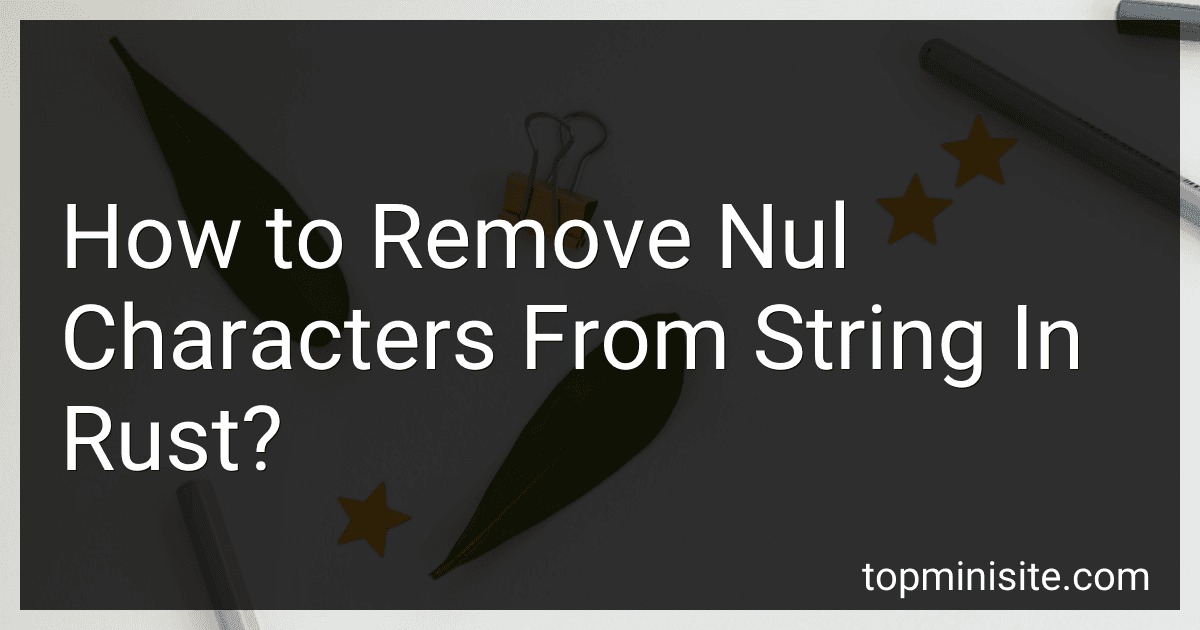 4 min readTo remove null characters from a string in Rust, you can use the chars method to iterate over each character in the string and filter out the null characters. Here is an example code snippet to achieve this: fn remove_null_chars(input: &str) -> String { input.chars().filter(|&c| c != '\0').collect() } fn main() { let input = "Hello\0World"; let result = remove_null_chars(input); println.
4 min readTo remove null characters from a string in Rust, you can use the chars method to iterate over each character in the string and filter out the null characters. Here is an example code snippet to achieve this: fn remove_null_chars(input: &str) -> String { input.chars().filter(|&c| c != '\0').collect() } fn main() { let input = "Hello\0World"; let result = remove_null_chars(input); println.
-
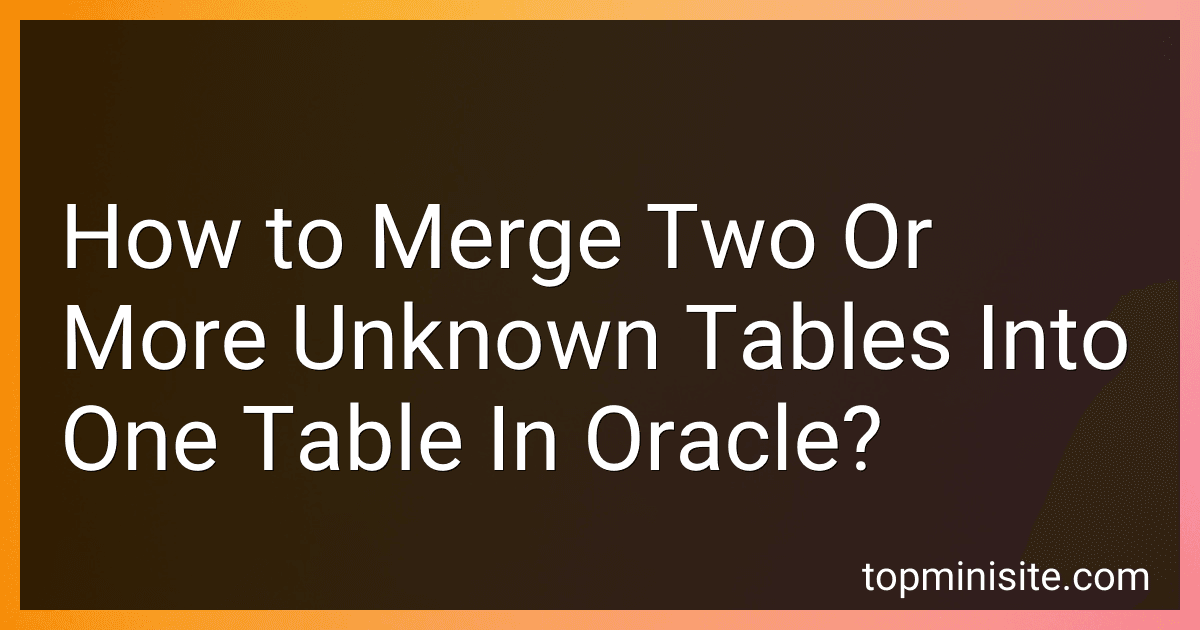 8 min readTo merge two or more unknown tables into one table in Oracle, you can use the UNION ALL keyword in a SQL query. This keyword allows you to combine the results of multiple SELECT statements into a single result set.First, you need to identify the columns that are common among the tables you want to merge. Then, you can write a SELECT statement for each table, selecting the common columns and any additional columns you want to include in the merged table.
8 min readTo merge two or more unknown tables into one table in Oracle, you can use the UNION ALL keyword in a SQL query. This keyword allows you to combine the results of multiple SELECT statements into a single result set.First, you need to identify the columns that are common among the tables you want to merge. Then, you can write a SELECT statement for each table, selecting the common columns and any additional columns you want to include in the merged table.
-
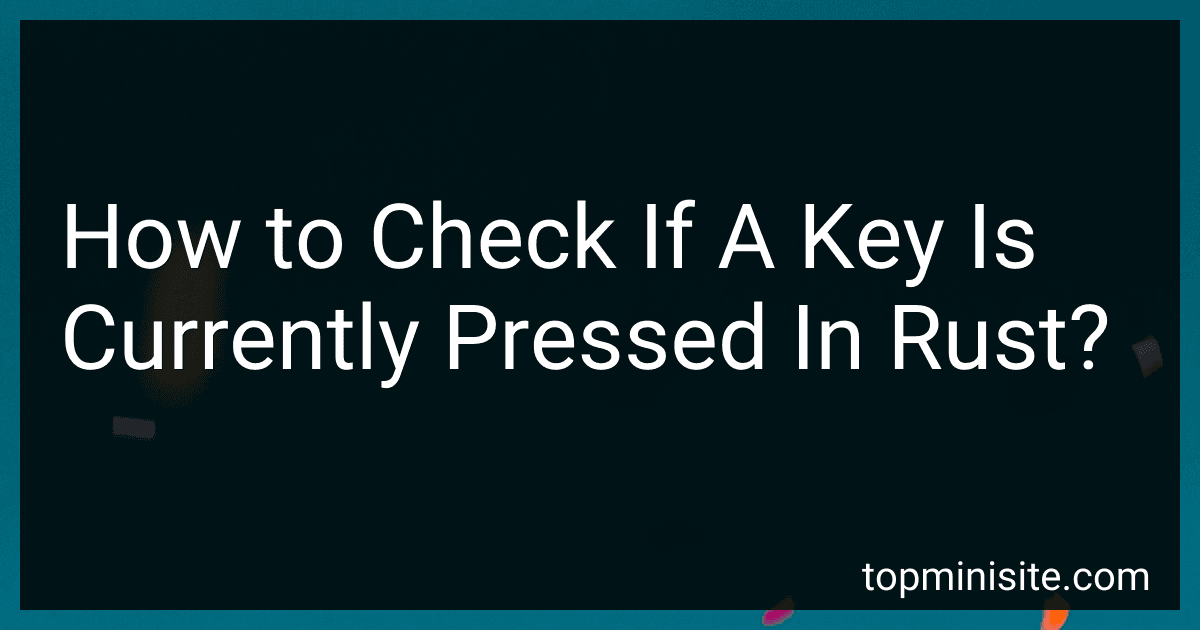 6 min readTo check if a key is currently pressed in Rust, you can use the termion or crossterm crate to interact with the terminal and handle input. You can create an event loop that continuously checks for key press events and then perform the desired action based on the key pressed. This can be done by listening for specific key codes or characters using functions provided by the crate. By checking the current state of the terminal input, you can determine if a key is being pressed at any given moment.
6 min readTo check if a key is currently pressed in Rust, you can use the termion or crossterm crate to interact with the terminal and handle input. You can create an event loop that continuously checks for key press events and then perform the desired action based on the key pressed. This can be done by listening for specific key codes or characters using functions provided by the crate. By checking the current state of the terminal input, you can determine if a key is being pressed at any given moment.
-
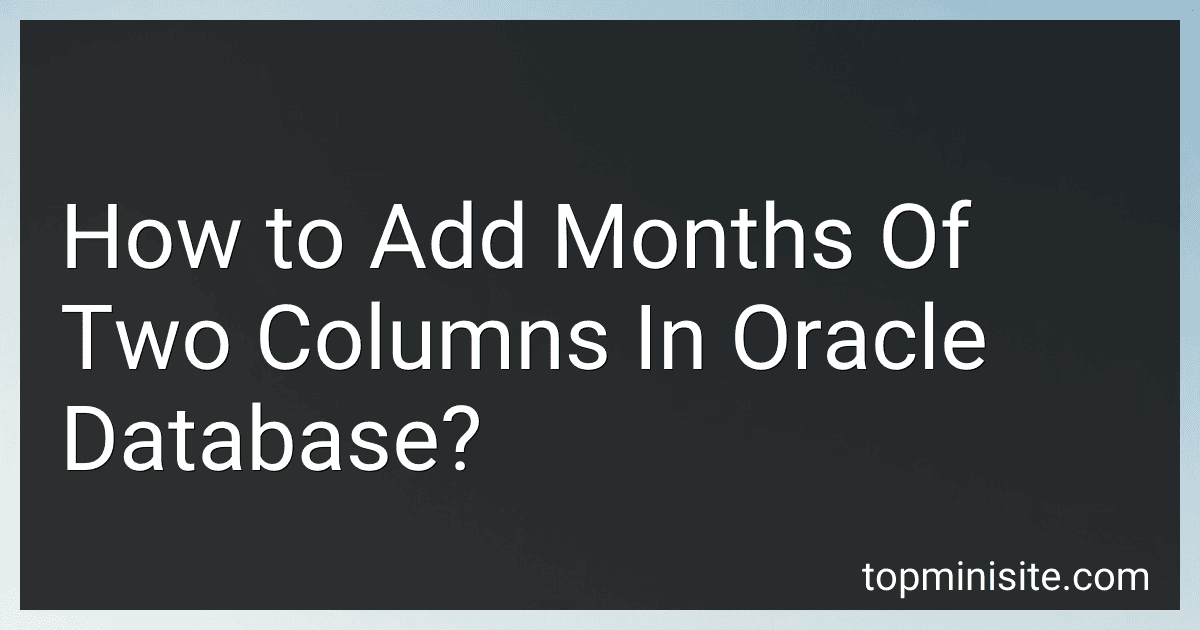 6 min readTo add months of two columns in Oracle database, you can use the ADD_MONTHS function. This function takes a date as input and adds a specified number of months to it. You can calculate the sum of months in two columns by using this function in a SQL query. Simply provide the column names or date values as arguments to the ADD_MONTHS function, along with the number of months you want to add.
6 min readTo add months of two columns in Oracle database, you can use the ADD_MONTHS function. This function takes a date as input and adds a specified number of months to it. You can calculate the sum of months in two columns by using this function in a SQL query. Simply provide the column names or date values as arguments to the ADD_MONTHS function, along with the number of months you want to add.
-
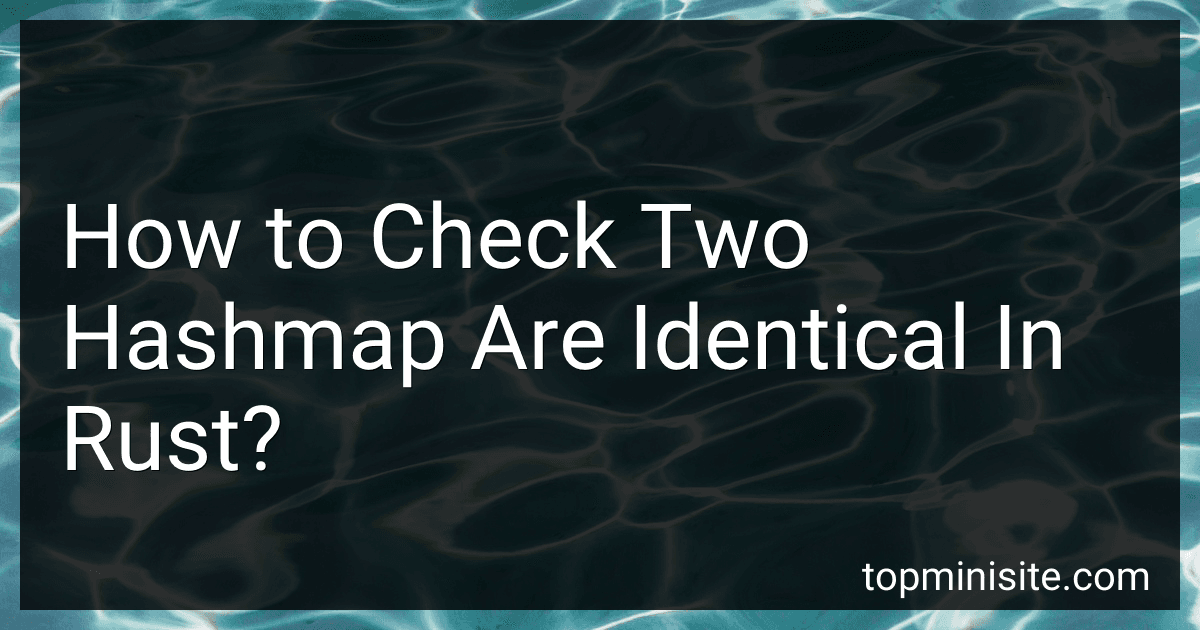 4 min readTo check if two HashMaps are identical in Rust, you can compare their key-value pairs. First, you can check if the two HashMaps have the same length using the len() method. Then, iterate over one of the HashMaps and check if each key-value pair exists in the second HashMap using the get() method. If all key-value pairs match, then the two HashMaps are identical. You can create a function to encapsulate this logic and return a boolean value indicating whether the HashMaps are identical or not.
4 min readTo check if two HashMaps are identical in Rust, you can compare their key-value pairs. First, you can check if the two HashMaps have the same length using the len() method. Then, iterate over one of the HashMaps and check if each key-value pair exists in the second HashMap using the get() method. If all key-value pairs match, then the two HashMaps are identical. You can create a function to encapsulate this logic and return a boolean value indicating whether the HashMaps are identical or not.
-
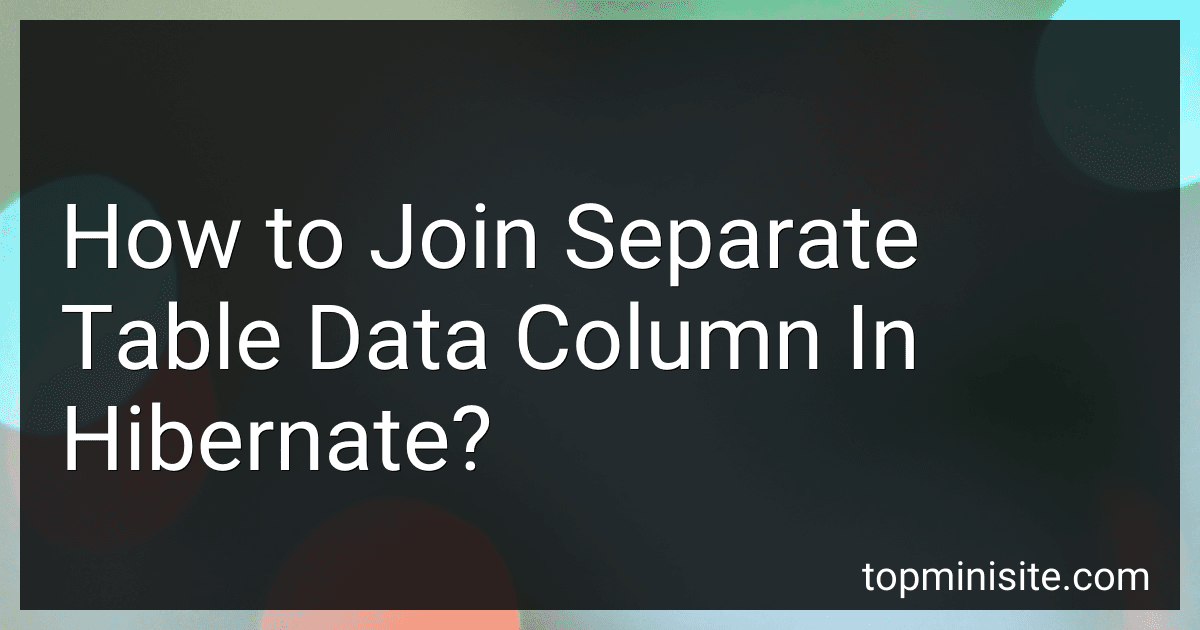 8 min readIn Hibernate, to join separate table data columns in a query, you can use the HQL (Hibernate Query Language) or Criteria API. By using HQL, you can write a SQL-like query to select specific columns from multiple tables and then create a custom result transform to combine the data from the separate tables. Alternatively, you can use the Criteria API to join the tables using criteria and then select the desired columns to be fetched in the result set.
8 min readIn Hibernate, to join separate table data columns in a query, you can use the HQL (Hibernate Query Language) or Criteria API. By using HQL, you can write a SQL-like query to select specific columns from multiple tables and then create a custom result transform to combine the data from the separate tables. Alternatively, you can use the Criteria API to join the tables using criteria and then select the desired columns to be fetched in the result set.
-
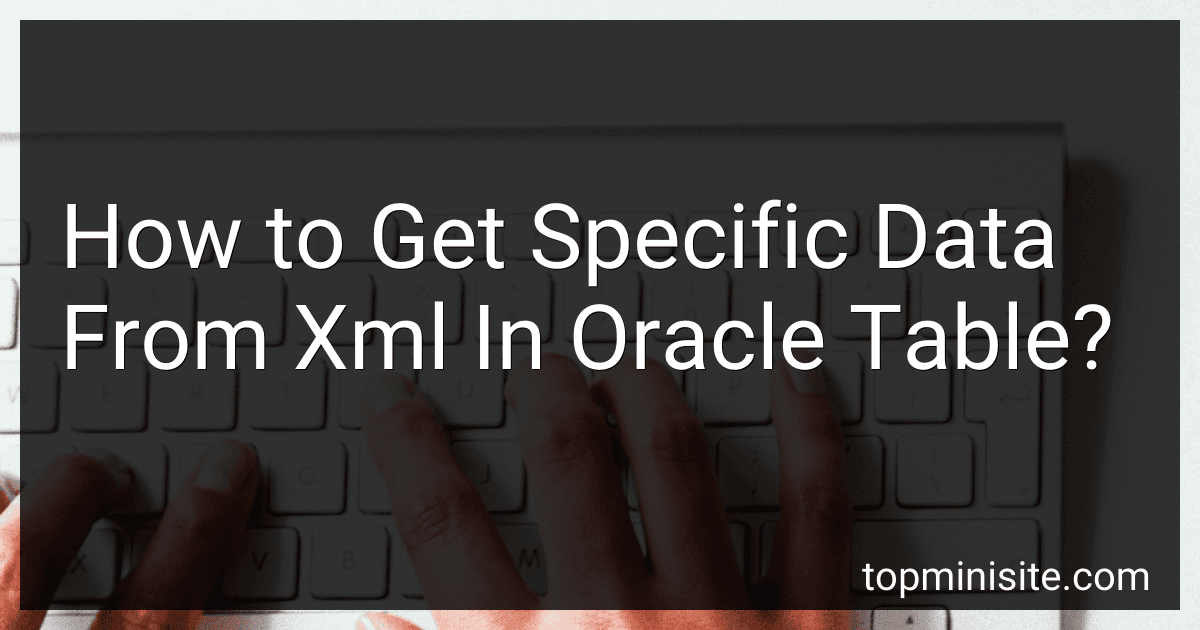 4 min readTo get specific data from XML in an Oracle table, you can use the XMLType data type and XML functions provided by Oracle. First, you need to query the XML column in the table using the XMLType constructor function. Then, you can use XPath expressions to navigate through the XML structure and extract the specific data you need. For example, you can use the extractValue() function to retrieve a specific element or attribute value from the XML document.
4 min readTo get specific data from XML in an Oracle table, you can use the XMLType data type and XML functions provided by Oracle. First, you need to query the XML column in the table using the XMLType constructor function. Then, you can use XPath expressions to navigate through the XML structure and extract the specific data you need. For example, you can use the extractValue() function to retrieve a specific element or attribute value from the XML document.
-
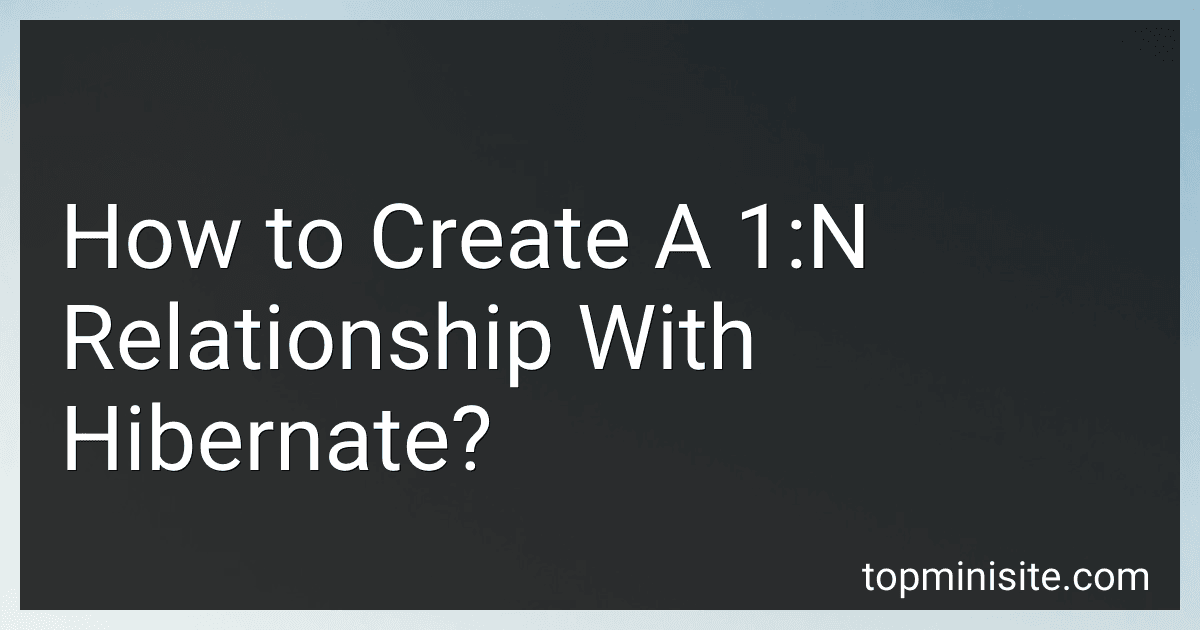 4 min readIn Hibernate, a 1:n relationship between two entities can be created by annotating the entities with the appropriate mapping annotations. One entity will have a reference to the other entity, indicating a one-to-many relationship.To create a 1:n relationship with Hibernate, you can use the @OneToMany annotation on the parent entity's field that represents the collection of child entities.
4 min readIn Hibernate, a 1:n relationship between two entities can be created by annotating the entities with the appropriate mapping annotations. One entity will have a reference to the other entity, indicating a one-to-many relationship.To create a 1:n relationship with Hibernate, you can use the @OneToMany annotation on the parent entity's field that represents the collection of child entities.
-
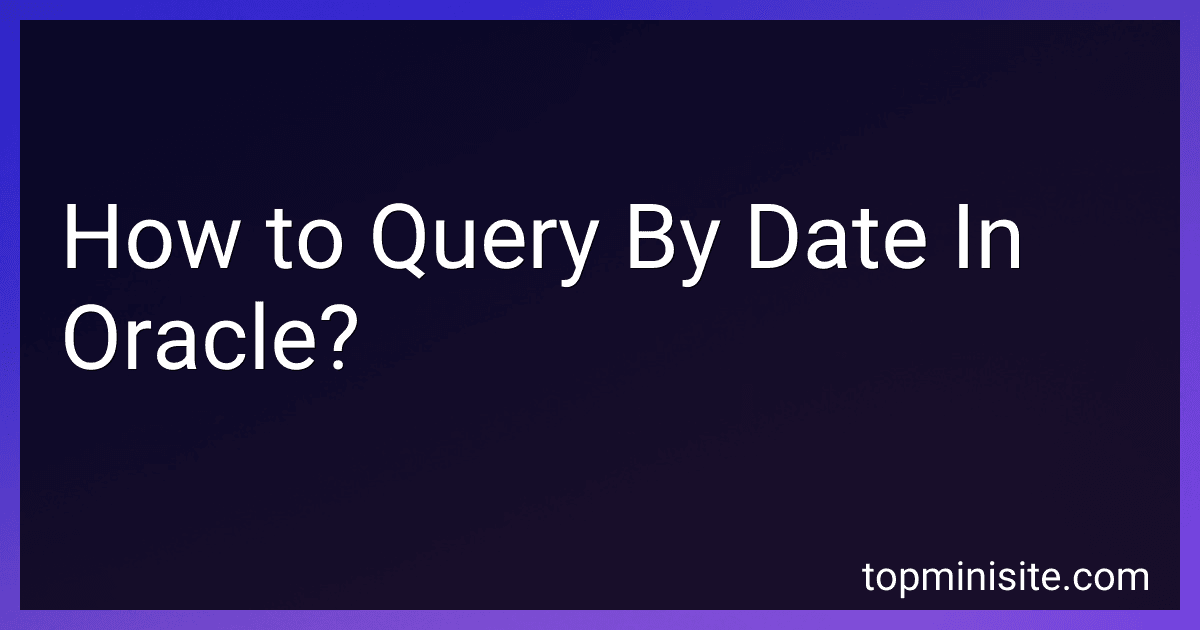 7 min readTo query by date in Oracle, you can use the TO_DATE function to convert a date string into a date format that Oracle can understand.
7 min readTo query by date in Oracle, you can use the TO_DATE function to convert a date string into a date format that Oracle can understand.
-
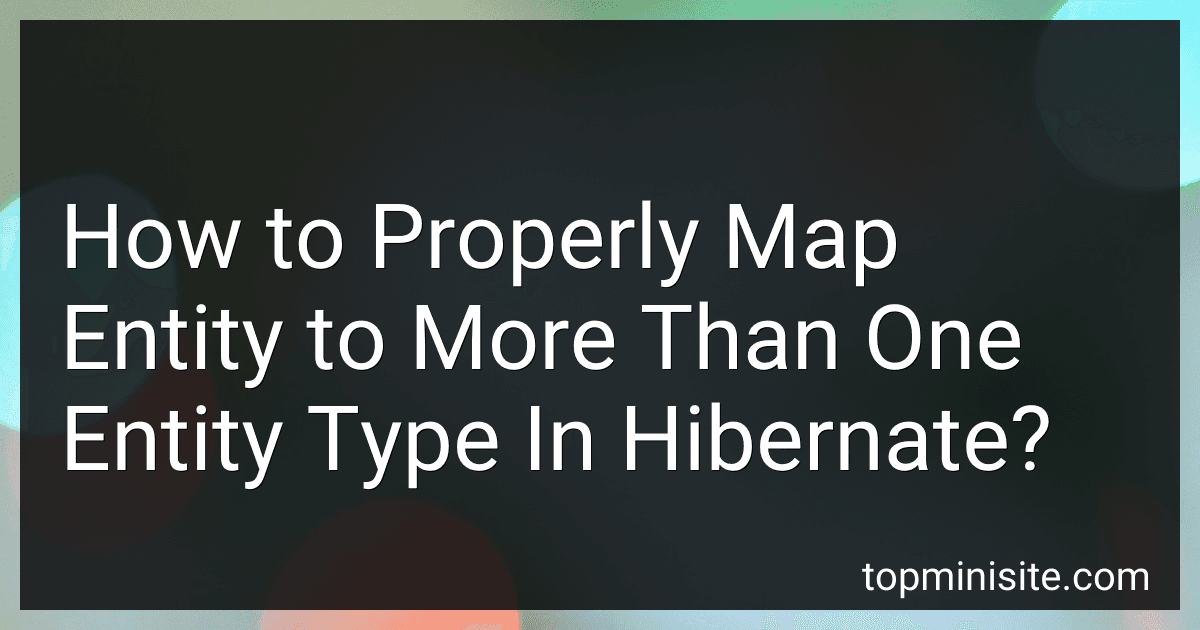 6 min readIn Hibernate, mapping an entity to more than one entity type can be achieved through inheritance mapping strategies. Hibernate supports four inheritance mapping strategies: table per hierarchy, table per concrete class, table per subclass, and table per class.To properly map an entity to more than one entity type, you need to define a base entity class and then create subclasses for each entity type you want to map to.
6 min readIn Hibernate, mapping an entity to more than one entity type can be achieved through inheritance mapping strategies. Hibernate supports four inheritance mapping strategies: table per hierarchy, table per concrete class, table per subclass, and table per class.To properly map an entity to more than one entity type, you need to define a base entity class and then create subclasses for each entity type you want to map to.
-
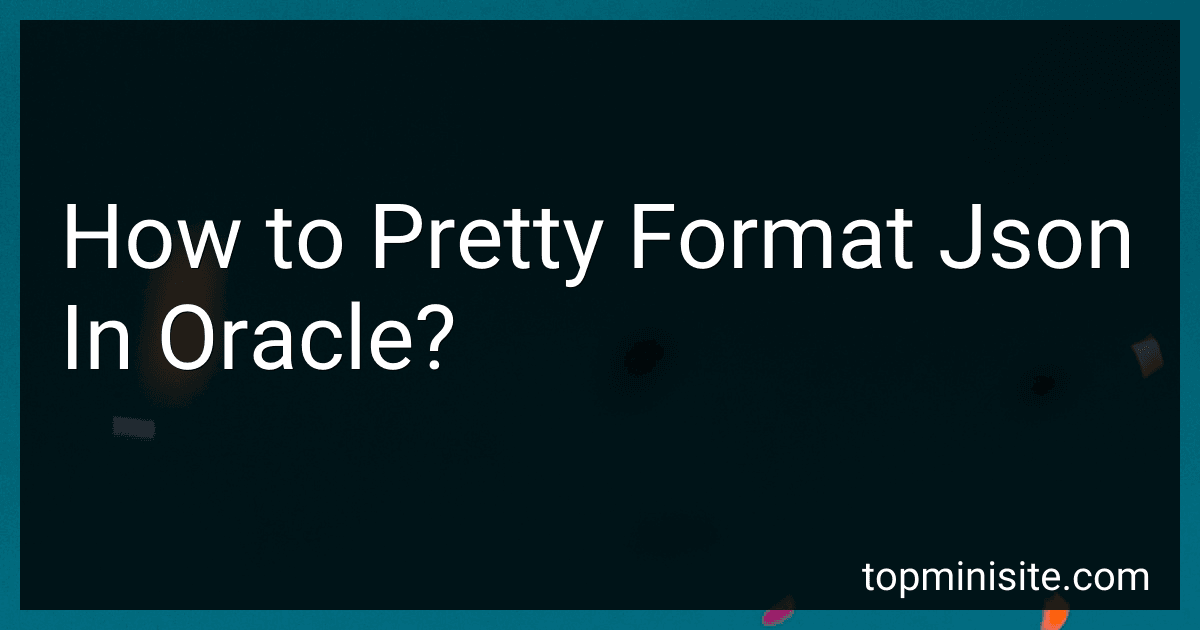 4 min readIf you want to pretty format JSON in Oracle, you can use the JSON_OBJECT function, which allows you to create JSON objects in a structured way. You can also use the JSON_QUERY function to extract values from a JSON document and format them in a readable way. Additionally, you can use the JSON_ARRAYAGG function to aggregate values from multiple rows into a single JSON array. These functions can help you format JSON data in a more organized and visually appealing manner.
4 min readIf you want to pretty format JSON in Oracle, you can use the JSON_OBJECT function, which allows you to create JSON objects in a structured way. You can also use the JSON_QUERY function to extract values from a JSON document and format them in a readable way. Additionally, you can use the JSON_ARRAYAGG function to aggregate values from multiple rows into a single JSON array. These functions can help you format JSON data in a more organized and visually appealing manner.